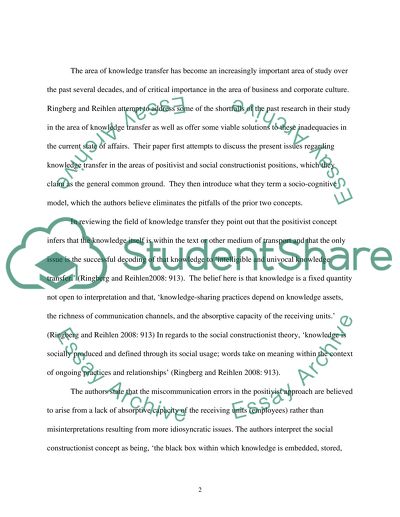Cite this document
(“Towards a Socio-Cognitive Approach to Knowledge Transfer Essay”, n.d.)
Towards a Socio-Cognitive Approach to Knowledge Transfer Essay. Retrieved from https://studentshare.org/psychology/1443259-write-a-review-of-the-following-paper-ringberg-t
Towards a Socio-Cognitive Approach to Knowledge Transfer Essay. Retrieved from https://studentshare.org/psychology/1443259-write-a-review-of-the-following-paper-ringberg-t
(Towards a Socio-Cognitive Approach to Knowledge Transfer Essay)
Towards a Socio-Cognitive Approach to Knowledge Transfer Essay. https://studentshare.org/psychology/1443259-write-a-review-of-the-following-paper-ringberg-t.
Towards a Socio-Cognitive Approach to Knowledge Transfer Essay. https://studentshare.org/psychology/1443259-write-a-review-of-the-following-paper-ringberg-t.
“Towards a Socio-Cognitive Approach to Knowledge Transfer Essay”, n.d. https://studentshare.org/psychology/1443259-write-a-review-of-the-following-paper-ringberg-t.


